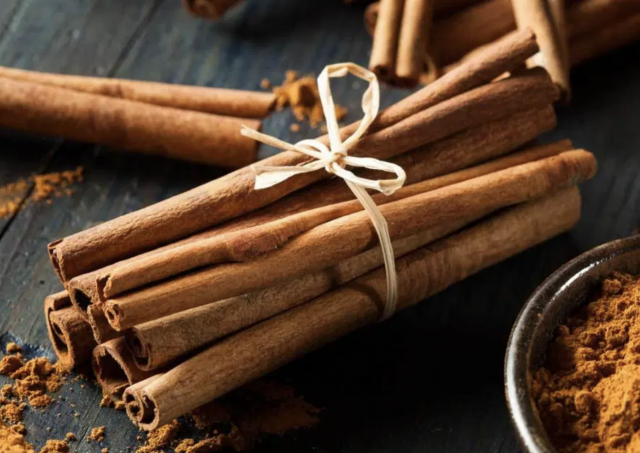Cinnamon, a humble spice made from the bark of the cinnamon tree, has been used for centuries as a food and drink additive, as well as showing up in folk and traditional medicines.
Not only a spice used in Chinese and Ayurvedic medicines, cinnamon has been mentioned several times in the Bible. In Exodus 30:21 it’s noted part of a holy anointing oil when mixed with myrrh and scented cane, it’s used as a perfume with myrrh and aloe in Proverbs 7:17, and has several other mentions including in Revelations 18:13 where it’s said to be one of the most precious items around in the last days. With a proud history of usefulness, many wonder if apart from its great taste, what proven health benefits it has to offer.
Cinnamon is made by scraping off pieces of the inner bark of the cinnamon tree and laying them out in the sun to dry. The bark then curls into its characteristically notable roles which is what most people associate with the spice. It’s more often available in shops around the world in its powdered form. It should be noted that only Ceylon cinnamon bark should be consumed in large quantities, as cassia cinnamon, while full of the same benefits, includes coumarin that isn’t safe for the liver when taken in large doses.
Cinnamon has a very distinct, warm aroma associated with it, and is one of the reasons it’s often reached for by communities around the world. This unique fragrance and taste is from the essential oils within the cinnamon tree bark, and they are known as cinnamaldehyde.
The properties of cinnamaldehyde include antiviral, antibacterial and antifungal. Which is why it’s often used as an ingredient in traditional medicine in treating colds and flu.
Anti-inflammatory
Apart from the cinnamaldehyde, cinnamon also boasts several polyphenol antioxidants, which are part of the group that help to protect the body from disease. Polyphenol antioxidants are found abundantly in fruits, vegetables and other herbs and spices, however the antioxidants found in relatively small dosage of cinnamon tea make it worth mentioning that they have a profound anti-inflammatory effect on the body. It may even help to reduce blood pressure, though studies are still ongoing in this regard.
Prebiotic Properties
Cinnamon is one of several spices that have prebiotic properties to help suppress the growth of pathogenic bacteria in the body while enhancing the growth of good bacteria such as Bifidobacterium spp. and Lactobacillus spp. This suggests that cinnamon can play a large role in regulating the intestinal microbiome along with supporting good gastrointestinal health leading to less digestive issues for people prone to them. It’s long been considered a carminative, which in Ayurveda is used to help suppress flatulence and digestive imbalance, as well as warm the blood and improve blood oxygen levels.
Cinnamon should be stored at room temperature in a sealed container to keep its noted health benefits intact. When given the option, choose to purchase whole cinnamon sticks, since they last longer (1 year) when compared to the powdered cinnamon versions which begin to lose flavour after a few months. Grating your own cinnamon from the sticks is a relatively easy process, just like when you play Blackjack for money, and it’s well worth the effort.


